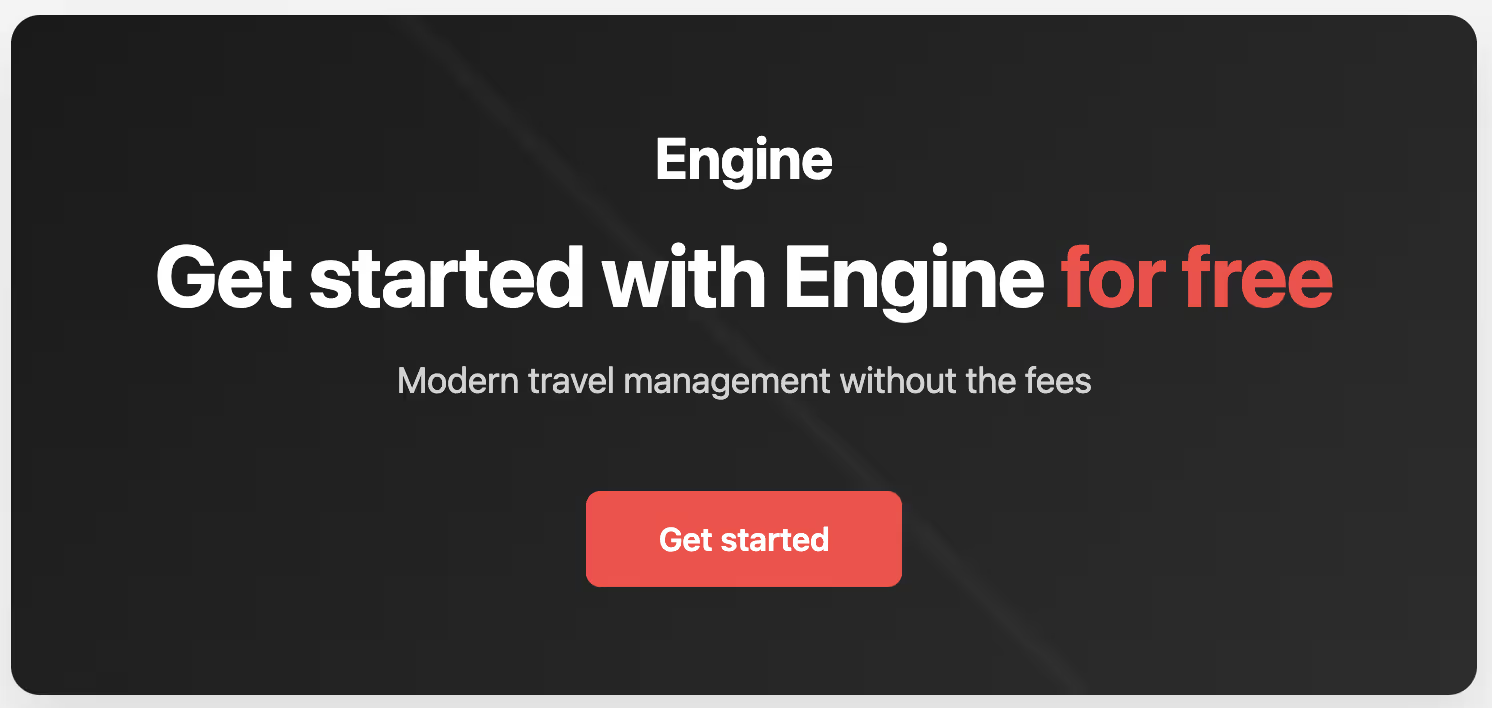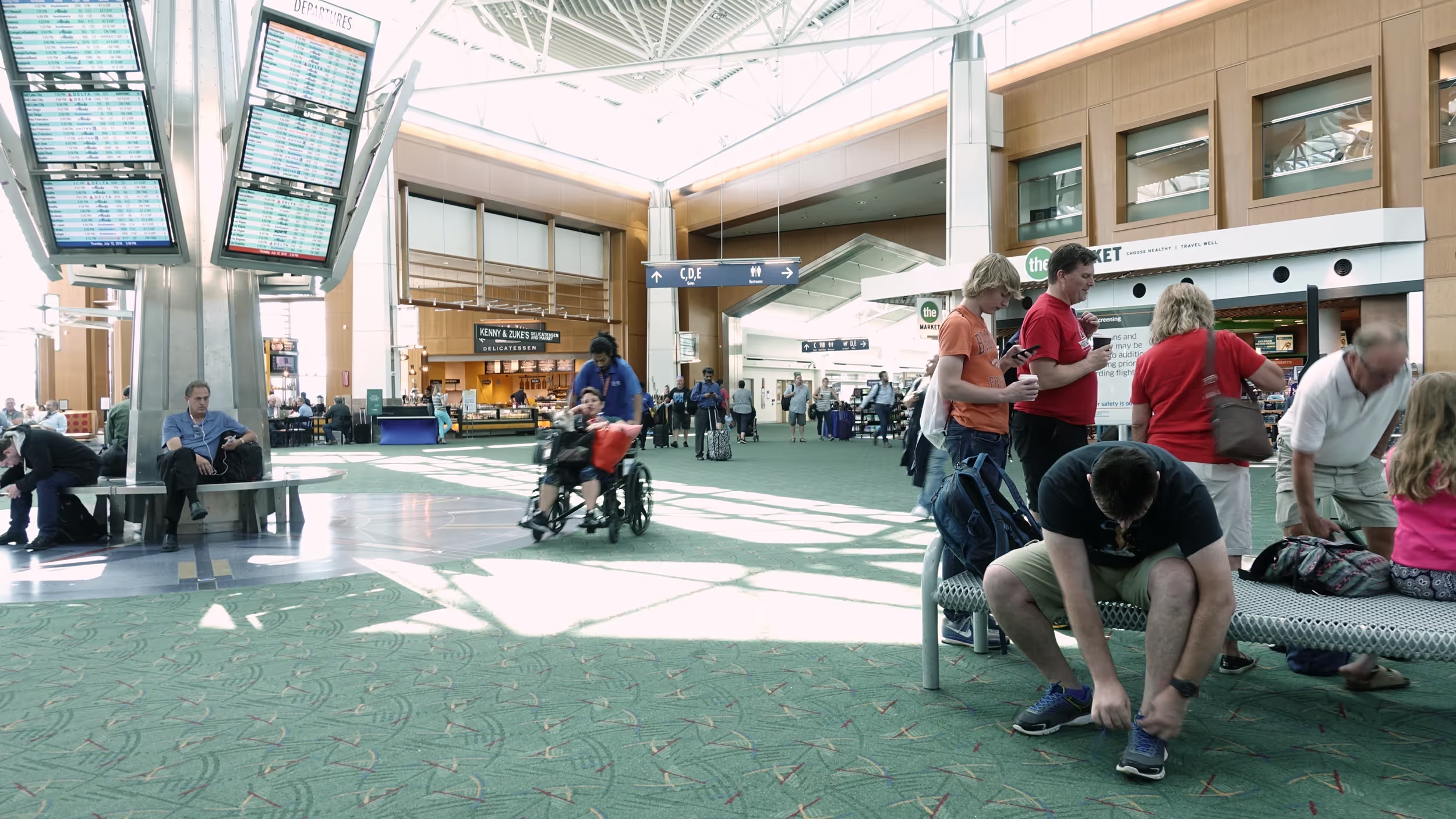Work Trip Planning: 10 Smart Tips for Stress-Free Travel
%20(1).jpg)
Your installation crew leaves for the job site Monday at 6am. It's Sunday night when you realize three team members booked their own hotels at different properties, two haven't booked anything yet, one person's hotel is 40 miles from the job site, and nobody knows the company's $150/night rate limit.
Now you're texting crew members, calling hotels to rebook, explaining to accounting why there are seven different charges across four credit cards. This is what happens when work trip planning becomes an afterthought instead of a process.
Poor planning costs money. Crews book wrong hotels, blow through rate limits, and show up unprepared. Projects start behind schedule before anyone swings a hammer.
These 10 tips show you how to plan, budget, and coordinate work trips so your crews arrive ready to work, costs stay controlled, and you're not fixing disasters on Sunday nights.
Know Your Travel Policy Before Anyone Books
Your company policy says "$150/night hotel limit"—great, except your crew's heading to Manhattan during peak season where that buys you a closet with a cot.
Know the rules before you book, but also know how to request exceptions when reality doesn't match the spreadsheet.
Find your travel policy in your HR portal, employee handbook, or travel platform. Check:
- Hotel rate limits and how to request exceptions
- Booking advance requirements (how many days ahead)
- Approved vendors and booking platforms
- Receipt submission deadlines
Policy violations cost you weeks and thousands. Your site supervisor books that $200/night hotel without approval? Accounting rejects the expense report. Now someone's covering hotel costs out of pocket for weeks while waiting for exception approval. That's a $1,600 problem sitting on someone's credit card.
If your policy isn't clear, ask your travel manager, HR, or direct supervisor before you book. Getting clarification takes five minutes. Fixing a policy violation takes hours.
Engine builds travel policies directly into the booking flow—rate limits, approval requirements, and exception workflows appear at checkout so crews can't accidentally book outside policy.
Get Pre-Approval for Trip Budgets and Expenses
Surprises at month-end close cost you time and credibility with finance.
Submit budget estimates before booking flights, hotels, meals, ground transportation, and incidentals. Get written approval via email or your travel platform's approval workflow. Document why costs exceed normal limits when they do.
Without pre-approval, you're gambling with company money. Your crew needs hotels near the North Dakota pipeline project. Rates run higher than your normal $120/night limit. Book eight rooms at $180/night without approval and finance rejects the expense report. Now you're personally covering $3,840 while waiting for exception approval.
When costs are documented and approved in advance, month-end closing runs smoothly instead of turning into a dispute resolution session.
Build in Buffer Time for Travel Delays
Tight schedules create stress when flights delay or equipment needs extra setup time.
Arrive the night before critical meetings or job start dates. Your concrete crew can't pour at 7am if they land at 6:30am—book them in the night before so they're rested and ready to work. Don't schedule back-to-back commitments on business trips.
Travel delays wreck tight schedules. When your crew arrives exhausted from red-eye flights or scrambles to set up equipment after landing, work quality suffers and safety risks increase.
Traffic slows ground transportation. Equipment takes longer to unload than expected. Buffer time absorbs these problems without derailing the entire project schedule.
Coordinate Group Travel Through One Person
Multiple people booking creates duplicate reservations and cost-tracking chaos.
Designate one person to handle all bookings for crew travel. When three different people book hotels for the same project, you end up with 18 rooms when you only needed 12.
Coordination prevents expensive mistakes. Share itinerary details with the entire crew—flight times, hotel addresses, and confirmation numbers. Use platforms that allow booking for multiple travelers from one account.
Without coordination, you're paying for unused hotel rooms, managing multiple confirmation numbers, and reconciling charges from different bookers across scattered credit cards.
Tag Bookings by Project for Accurate Cost Tracking
Project-specific cost allocation prevents budget variance surprises at month-end.
Your CFO wants to know why the Henderson project is 20% over budget. If travel costs aren't tagged to Henderson, you can't answer that question. Use project codes or job numbers when booking travel.
Without project tagging, your cost reports lie to you. Finance can't calculate true project profitability when $15,000 in travel costs hide in overhead instead of the Henderson project where they belong. Client billing becomes guesswork instead of precision.
Engine builds project-code tagging directly into the booking flow through custom fields. Tag bookings with client names, job numbers, and PO codes at checkout. Costs automatically roll up to the right project without manual spreadsheet tracking.
Communicate Job Site Requirements to Your Crew
Crews need to know what to bring and expect at the work location before they arrive. Before crews travel, communicate:
- Job site address and arrival instructions
- Site contact name and phone number
- Required PPE (flame-resistant clothing, hard hats, steel-toed boots)
- Tools or certifications needed for site access
- Work hours, break schedules, and site-specific safety rules
- Emergency contact info for travel issues
Poor communication creates safety problems and expensive do-overs. If your crew shows up to the refinery without flame-resistant clothing because nobody told them it's required, they're not getting on-site that day. That's a full day of labor costs with zero work completed.
Job site requirements vary. Chemical plants require different PPE than construction sites. Communicate these requirements before crews travel, not after they arrive and get turned away at the gate.
Book Refundable Rates for Uncertain Project Timelines
Equipment delays and weather changes make flexible booking necessary for project-based work.
Weather delays outdoor installations constantly. Equipment ships late. Client approvals take longer than expected. When project start dates aren't confirmed, choose refundable hotel rates.
Non-refundable bookings cost money when plans change. Paying $20 extra per night for refundable rates beats losing $1,500 on canceled non-refundable bookings when weather delays your outdoor installation by a week.
Engine's Flex Pro subscription provides guaranteed refunds even on non-refundable rates. Cancel until noon on the day of check-in when job timelines shift. Project delays and client changes no longer cost you money in wasted hotel bookings.
Use Direct Billing to Eliminate Crew Credit Card Hassles
Field workers shouldn't front company money or chase reimbursements on business trips.
Your technicians should focus on equipment setup, not whether their personal credit card will cover a $600 hotel bill. Direct billing platforms pay hotels directly—crews check in without credit cards or authorization forms.
Credit card hassles slow down project work. Crews waste time calling for authorization form approvals. Personal credit limits get maxed out on company travel. Reimbursement delays create financial stress for workers who shouldn't be fronting company money.
Engine's Direct Bill and Incidental Coverage features eliminate payment friction entirely. Crews walk in, show ID, and get keys. Hotels bill Engine directly, and you receive consolidated monthly invoicing instead of scattered crew expenses.
Set Clear Per Diem and Meal Allowance Expectations
Unclear meal policies lead to expense report disputes that waste everyone's time.
If your welding crew works 12-hour shifts and you only reimburse three meals, they're paying out of pocket for the fourth meal themselves. Before crews travel, clarify:
- Daily per diem amount or meal reimbursement limits
- What's covered: breakfast, lunch, dinner, snacks
- What's excluded: alcohol, room service
- Receipt requirements (many companies waive receipts under $25)
Your crew member submits an $80 dinner receipt thinking it's fine but company policy caps dinner at $50. Now there's a $30 dispute, finance rejects the expense report, the crew member feels blindsided, and you're playing mediator instead of managing the project.
Clear per diem expectations set before travel prevent these disputes entirely.
Debrief After Every Trip to Improve Future Planning
Learning from what went wrong prevents repeat problems on your next work trip.
Ask your crew what worked and what didn't—hotel location, booking process, and communication effectiveness. Document travel issues. Track costs versus budgeted costs to improve future estimates.
Expensive mistakes repeat without debriefs. If your crew spent 45 minutes driving from the hotel to the job site every morning because you booked the cheapest hotel 30 miles away, that's 7.5 hours of wasted labor costs per person per week. A ten-person crew on a two-week project loses 150 hours of productive work time just driving to the job site.
Use travel data to make better decisions next time. When you track what happened versus what you planned, future estimates become accurate instead of hopeful guesses.
Stop Scrambling and Start Planning
Good planning beats scrambling every time. When you follow these 10 steps, work trips run themselves. Your crews arrive prepared, costs stay controlled, and projects start on schedule instead of behind it.
Engine handles the booking complexity through built-in policy enforcement, approval workflows, project tracking, expense management, and flexible cancellations. Your job is running projects, not fixing travel disasters on Sunday nights.
Ready to stop texting crew members at midnight and start managing real work? See how Engine eliminates booking chaos for project-based teams.

Frequently Asked Questions
How far in advance should I book hotels for crew travel to get the best rates?
Book 2-4 weeks ahead for standard projects. That's where inventory is still available but hotels haven't jacked up last-minute rates. For remote locations or peak construction seasons, push that to 6-8 weeks to secure crew blocks before properties fill up.
What should I do if a crew member books travel on their own without going through the designated coordinator?
Add the booking details to your master itinerary immediately so nothing gets lost, then have a direct conversation about why coordination matters—duplicate bookings and scattered expenses cost money. Make sure they understand the process for next time, and loop in your manager if it becomes a pattern.
How do I handle travel arrangements when crew members are coming from different cities to the same job site?
Coordinate arrival times so everyone lands within a 2-3 hour window. That way you can arrange one shuttle run instead of multiple pickups. Book hotels with the same check-in date for the whole crew even if arrival times vary, and make sure the property knows to hold late check-ins without charging extra.







.jpg)







.avif)





.jpg)






![How to Get the Best Hotel Deals and Rewards [Infographic]](https://cdn.prod.website-files.com/66a41388b1be9ba182f1e80c/66a41388b1be9ba182f1f257_Windsor_Hotel_-_in_winter.avif)




